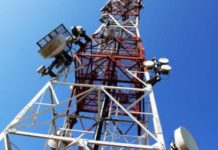The Executive Vice Chairman of the Nigerian Communications Commission (NCC) Professor Umar Danbatta has said that Nigeria has requisite key Policy and Regulatory frameworks and instruments to enable her play a leading role in powering the 4th Industrial Revolution.
The EVC who was represented by the Executive Commissioner, Stakeholder Management, NCC, Barr. Adeleke Adewolu spoke at the 3rd Discourse Series of the Advocaat Law Practice.
He cited the National Digital Economy Policy and Strategy Policy (2020-2030) as one of such policies and regulations that would enable Nigeria become a leading player in the global digital economy and provide a catalyst to facilitate the diversification of the economy.
Danbatta also said the policy document would help accelerate the attainment of the key national objectives of improving security, reducing corruption and expanding the economy.
The EVC also cited the Nigerian National Broadband Policy (2020-2024) that clearly highlights the various implementation strategies that would aid the pervasive inclusion and rollout of broadband services across the country whilst also developing a robust and holistic digital economy.
According to him the various policy goals highlighted above would harness the immense socio-economic benefits of ICT for national development and ensure that ICT infrastructure are up to the standard necessary to provide ubiquitous broadband services in Nigeria; align the Commission’s regulatory efforts with the aforementioned Policy Instruments, as well as the growth strategies of the International Telecommunications Union (ITU) to ensure Growth, Inclusiveness, and Sustainability.
He said licensing of six infrastructure companies (InfraCos) will speed up the deployment of broadband infrastructure throughout Nigeria and provide training and support for public institutions with ICT interventions like School Knowledge Centers and ADAPTI.
Danbatta said Nigeria can only maximize the potentials of the 4th Industrial Revolution if it articulate effective and forward-looking Policy Instruments to guide its emergence into the future digital landscape and ensure the ubiquitous presence, the seamless operation and the cost-effective availability of communications infrastructure which will power the digital aspirations of all sectors of the Nigerian economy and ensure that national competitiveness is guaranteed.
He said the NCC was keenly aware of the critical need to harness the contributions of all critical Stakeholders across all industry platforms and professional groups to ensure that Nigerians fully participate in the Fourth Industrial Revolution as drivers and innovators. We hope that we can continue to count on the support of all stakeholders in this quest.
The EVC said the Commission has expanded broadband penetration from 6% to 42.06 as at February 2021, reduced access gap clusters from 207 to 114, increase Fibre Optic coverage from 47,000km to 54,725 km and Base Transceiver Stations for 3G and 4G deployments from 30,000 to 53,460.
Funding of Telecom research has been increased to N336.4m and have endowed four Professorial Chairs.













